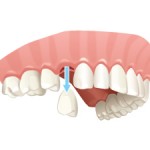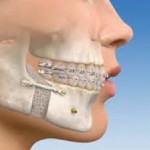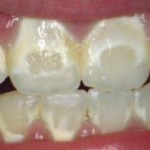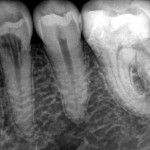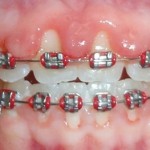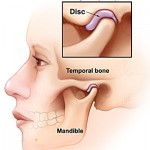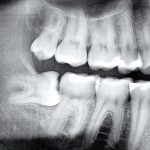Some cases will require the removal of deciduous (baby) teeth or permanent teeth. When the treatment is completed, all of the spaces from the extractions will be closed.
Some patients have significant skeletal disharmonies which require orthodontic treatment in conjunction with orthognathic (dentofacial) surgery. Please be aware that orthodontic treatment prior to orthognathic surgery often only aligns the teeth within the individual dental arches. Therefore, patients discontinuing orthodontic treatment without completing the planned surgical procedures may have a malocclusion that is worse than when they began treatment. The oral maxillofacial surgeon will also discuss the planned surgical procedure with you.
Excellent oral hygiene is essential during orthodontic treatment as are regular visists to your regular dentist. Inadequate or improper hygiene could result in cavities, discolored teeth, periodontal disease and/or decalcification. These same problems can occur without orthodontic treatment, but the risk is greater to an individual wearing braces or other apliances. These problems may be aggravated if the patient has not had the benefit or fluoridated water or its substitute, or if the patient consumes large amounts sweetened beverages or foods.
The roots of some patients’ teeth become shorter (resorption) during orthodontic treatment. It is not known exactly what causes root resorption, nor is it possible to predict which patients will experience it. However, many patients have retained teeth throughout life with severly shortened roots. If resorption is detected during orthodontic treatment, Dr. Sezer Olcay may recommend a pause in treatment or the removal of the appliances prior to the completion or orthodontic treatment.
Periodontal (gum and bone) disease can develop or worsen during orthodontic treatment due to many factors, but most often due to the lack of adequate oral hygiene. You must have your general dentist, or if indicated, a periodontist monitor your periodontal health during orthodontic treatment every three to six months. If periodontal problems cannot be controlled, orthodontic treatment may have to be discontinued prior to completion.
Problems may occur in the jaw joints, like temporomandibular joints (TMJ), causing pain, headaches, or ear problems. Many factors can affect the health of the jaw joints, including past trauama (blows to the head or face), arthritis, hereditary tendency to jaw joint problems, excessive tooth grinding or clenching, poorly balanced bite, and many medical conditions. Jaw joint problems may occur with or without orthodontic treatment. Any jaw joint symptoms, including pain, jaw popping or difficulty opening or closing, should be promptly reported to Dr. Olcay. Treatment by other medical or dental specialists may be necessary.
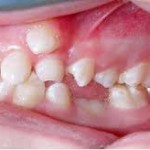 Impacted Anklyosed Unerupted Teeth
Impacted Anklyosed Unerupted Teeth
Teeth may become impacted (trapped below the bone or gums), ankylosed (fuse to the bone) or just fail to erupt. Oftentimes, these conditions occur for no apparent reason and generally cannot be anticipated. Treatment of these conditions depends on the particular circumstance and the overall importance of the involved tooth, and may require extraction, surgical exposure, surgical transplantation or prosthetic replacement.
As third molars (wisdom teeth) develop, your teeth may change alignment. Your dentist and/or orthodontist should monitor them in order to determine when and if the third molars need to be removed.

